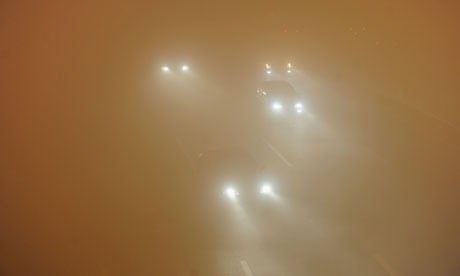Public concern in environmental issues including global warming, the loss of species and air pollution has dropped to its lowest level in two decades, according to an international poll released this week.
The GlobeScan poll, undertaken last summer before superstorm Sandy hit the Caribbean and New York, showed levels of public concern in 12 countries over environmental problems – which also also included fresh water shortages and depletion of natural resources – were even lower than 1992, when the first Earth summit was held in Rio.
The decline has come in a period when the signs of environmental degradation have become clearer and the science stronger, from species going extinct faster than new ones can evolve to dramatic climate change impacts such as the shrinking of Arctic sea ice in 2012 by 18% against the previous record.
Doug Miller, chairman of GlobeScan, said in a statement: "Evidence of environmental damage is stronger than ever, but our data shows that economic crisis and a lack of political leadership mean that the public are starting to tune out."
On average globally, only 49% of people said climate change was a "very serious" concern, with 50% saying the same for biodiversity loss and the highest level being 58% for shortages of fresh water. The poll shows concern for most issues was rising through the noughties and declined since around 2009 when a major UN climate summit in Copenhagen failed to reach a strong deal.
Graham Thompson, a spokesman for Greenpeace, told the Independent: "The public can see that the response of our politicians is completely inadequate to the threat scientists have revealed, and that dissonance is reflected in these polls."
Around 1,000 people in each of the 22 countries taking part in the poll were quizzed on their attitudes, with 12 countries having been polled since 1992. A total of 22,812 people in the following countries were polled: Australia, Brazil, Canada, China, France, Germany, India, Indonesia, Japan, Kenya, Malaysia, Mexico, Nigeria, Pakistan, Panama, Peru, Poland, South Korea, Spain, Turkey, United Kingdom, US, Brazil, China, Indonesia, Kenya, Panama, and Turkey

Comments (…)
Sign in or create your Guardian account to join the discussion